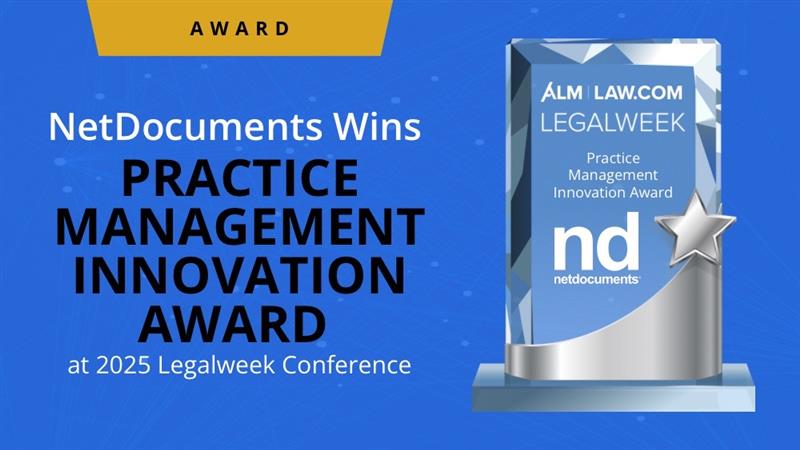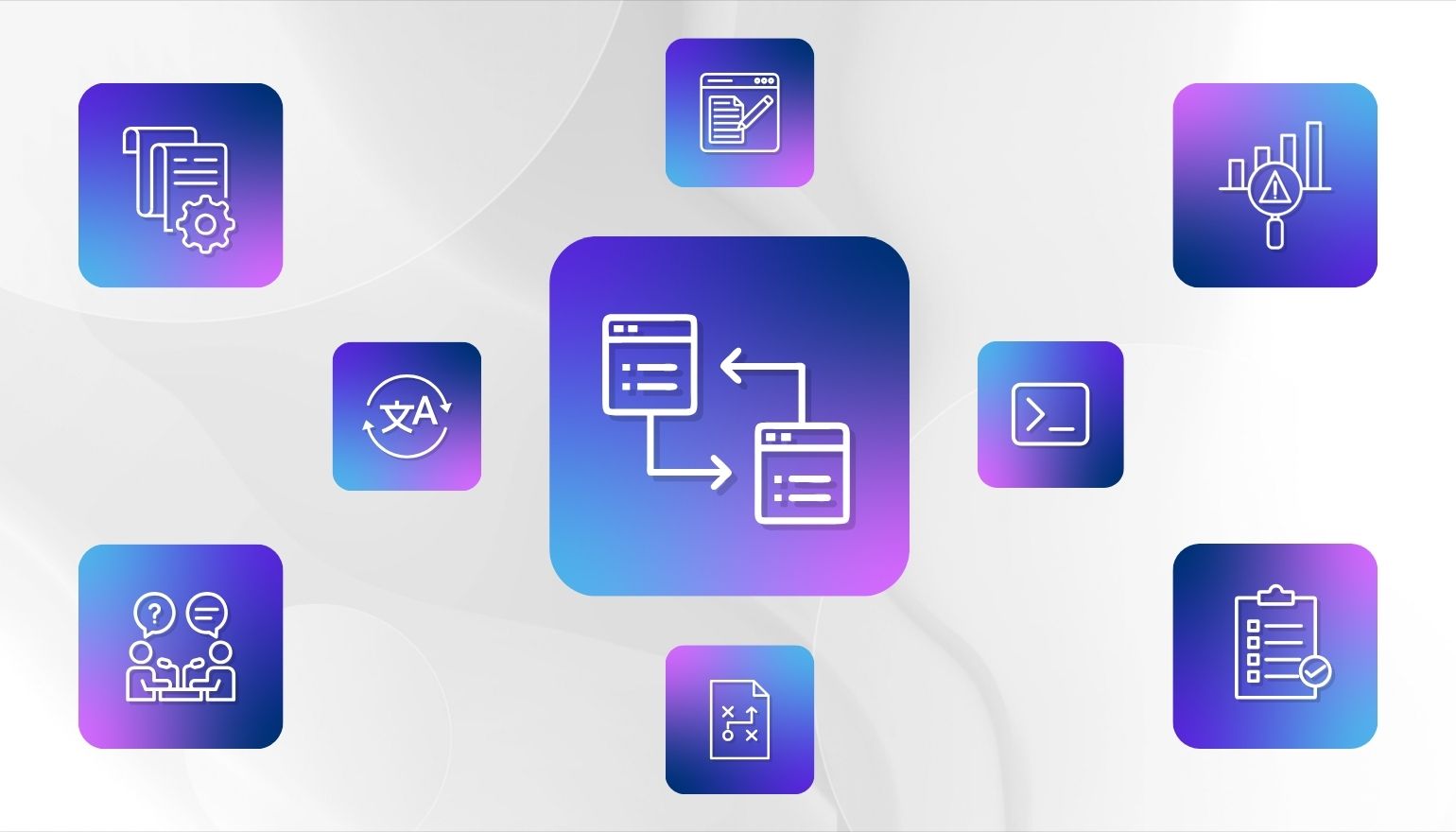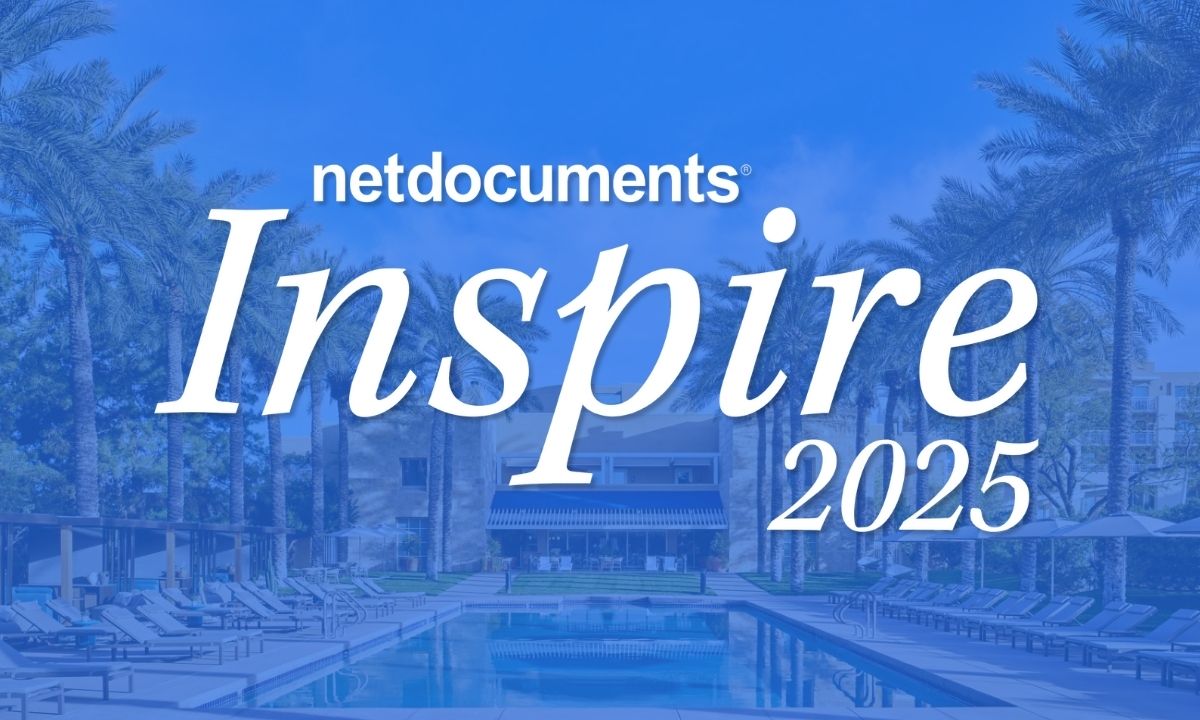
Blog
DMS Blog Series, Part 4 of 5: What to Look for When Choosing a DMS

With the rise of cloud and artificial intelligence, selecting the best DMS platform is the difference between success and failure in a fast-moving marketplace. It’s a critical decision, as the wrong choice can lead to an incomplete matter file or worse, malpractice. We’ve already covered what is a document management system (DMS) in part one, why your firm needs a DMS in part two, and potential roadblocks and solutions in part three, and now you’ll learn questions to ask when shopping and choosing the right DMS for your firm and team.
A new document management system is a complex process, and it’s critical to ask the right questions to ensure you’re getting a solution that matches the demo you’ve received, and mitigate any risk of surprise after the contract is signed. To help you make the right choice, use these questions as a starting point in your conversations with potential vendors.
6 Questions to Ask Specifically About the DMS
As you consider various solutions, you’ll want to evaluate how a DMS will meet your needs and fit into your existing system. Here are a few questions to help you get started:
1. What tools does the legal DMS integrate with?
Your firm likely uses various business tools for practice management, time tracking, invoicing, and more. Switching between apps can be tedious, and everything is so much easier when they work together harmoniously. Be sure to review the DMS’s app store to ensure it will integrate seamlessly with the tools you’re already comfortable with such as Microsoft Teams.
2. What security features does the platform provide? Will it be easy to gather required documentation/certification for compliance verification?
Security is a priority, especially for lawyers and legal teams. A cloud-based DMS can actually improve your security posture compared with an on-premises system with features like advanced encryption, user access controls, and data loss prevention, among others.
3. Does your DMS meet you where you work or are you forced into a single user experience?
When you’re working outside the office, the last thing you need is a technology issue. VPN connections are notoriously unreliable and trying to switch between different devices can be a nightmare of its own. Luckily, it doesn’t have to be this way.
With the right DMS provider, you can be as mobile as you need to be accessing documents from your mobile device (e.g. iPhone or Android) or tablet, from anywhere in the world.
4. How well does the platform organize and search files?
With thousands upon thousands of documents being created, stored, accessed, shared, reviewed, and edited, your DMS can quickly become a maze. It’s critical to find what you need immediately, yet many firms still struggle with consistent file organization, making it even more difficult to navigate.
When choosing a DMS, look for matter-centric organization with the flexibility to manage through a folder structure or filtered searches as a standard feature, review how the platform handles version control, and evaluate the strength of filtered searches. Ask about optical character recognition (OCR) technology to be sure that text from other file types such as PDFs, JPEGs can also be readily searched.
5. Does the platform support collaboration with internal and external stakeholders?
Sharing documents, especially with clients and other external stakeholders, can be difficult to handle securely. The right DMS can help you manage accessibility controls and keep your sensitive content from getting into the wrong hands. It’s important to note that secure collaboration and sharing should happen within the platform’s security, without having to move the documents out of the secure DMS.
6. What additional services can I add on at a later date?
Whether you are looking to round out your tech stack with compatible products or scanning the horizon to assess your firm’s future needs, exploring the add-on services of your DMS provider can be helpful as you make your decision.
5 Questions to Ask the DMS Provider
With a platform as central as your DMS, you want to know that the provider has your back and will be a company you want to continue working with for the long-term. These questions will help you assess competing providers and the level of service you’ll be able to expect.
1. How quickly can we start a proof of concept (POC)?
Cloud providers with a hosted environment may need a week or more to deploy a POC, while providers using a true multi-tenant cloud (like NetDocuments) will be able to get you a proof of concept within 1-2 days. This allows your legal teams to start exploring and evaluating the platform much quicker.
2. How will you handle the migration process?
Your documents and data need to be handled with care, but some DMS providers require multiple migrations that increase costs for your firm and may even leave your documents decrypted and exposed. Verify that you understand, both contractually and technically, how your data will be handled, how security will be maintained, and what the migration costs will be.
3. Can we review your cloud services agreement?
Your DMS is central to work at your firm. As such, even a few minutes of downtime can cost tens of thousands in billable hours. Review the provider’s cloud services agreement and look closely at the provider’s system availability and how many hours of maintenance recovery they reserve.
4. How many of your customers have left to your main competitor, and why?
You want to understand if customers are happy with the service they are receiving. If many customers have left a provider for a competitor, this is likely a red flag. It’s also encouraged to ask about vendors in online user communities about a vendors product roadmap and their ability to deliver on commitments.
5. Can you connect me with 5 customers actively using the same version or instance that we are looking to purchase?
Just as you would not hire an employee without checking references, the same should be true of your future DMS provider. Current customers can provide a reliable review of the product and service, including strengths and weaknesses, but be specific with who you request to hear from. You want to ensure you talk to the vendor’s customers that are using the same version and environment that you are evaluating, as it wouldn’t help to get a reference from someone using a diesel truck when you’re looking to buy an electric car.
Get the DMS That’s Right for You
There are many different DMS platforms to choose from, with a variety of features and tools to meet your needs. Finding the right DMS takes effort, but when you have a platform you can rely on, work becomes so much easier.
Stay tuned for the fifth and final installment of our DMS blog series, where we’ll discuss the dynamic attributes of NetDocuments and how it can help your firm work more effectively and securely.
Want to learn more about NetDocuments and how you can maximize security, productivity, and collaboration? Click here to request a demo or call (866) NET-DOCS today.
Post Loop Title
-

- Blog
NetDocuments Wins Practice Management Innovation Award at 2025 Legalweek Conference
NetDocuments is proud to announce a new accolade for our intelligent…
-

- Blog
Ready-to-Go AI Apps for Legal Use Cases Available Now in the New ndMAX Studio
Legal professionals are looking for smarter, faster, secure ways to harness…
-

- Blog
AI-Driven Legal Tech Trends for 2025
With 79% of law firm professionals now incorporating AI tools into…
-

- Blog
Convincing Corporate IT That Legal Really Is Different: Making the Case for Corporate Legal Department Software
Explore the unique challenges legal operations leaders face in advocating for…
More from the blog
-

- Blog
NetDocuments Wins Practice Management Innovation Award at 2025 Legalweek Conference
NetDocuments is proud to announce a new accolade for our intelligent…
-

- Blog
Ready-to-Go AI Apps for Legal Use Cases Available Now in the New ndMAX Studio
Legal professionals are looking for smarter, faster, secure ways to harness…
-

- Blog
AI-Driven Legal Tech Trends for 2025
With 79% of law firm professionals now incorporating AI tools into…
-

- Blog
Convincing Corporate IT That Legal Really Is Different: Making the Case for Corporate Legal Department Software
Explore the unique challenges legal operations leaders face in advocating for…
netdocuments


